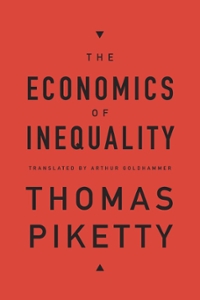Question
As you know from the lecture in Week 2, the federal government has the authority to declare a national emergency, including for reasons of public
As you know from the lecture in Week 2, the federal government has the authority to declare a national emergency, including for reasons of public health. Governors of virtually all states have the same powers and are given great latitude in the exercise of these powers. Yet are they / should they be absolute?
Below are 10 situations in which these powers either have been, or could be, used in a public health emergency. Think of these in relation to the recent pandemic for COVID -19.
Each of these situations raises legal and/or ethical questions. For each of these situations, discuss one reason why you think the use of emergency powers would be legal, or would be illegal. Also, for each of these situations, discuss one reason why you think this use of emergency powers would be ethical, or would be unethical.
Remember 'the most important information you will learn this Term' -- that the answers to ethical issues are not cut & dried / black and white. I am interested in your understanding of the issues, and your reasons for coming to your conclusions.
Situations: In a public health emergency, the federal / state governments:
1. Prohibited gatherings of 25 or more people, and issued an order requiring social distancing.
2. Closed most retail stores and public schools
3. Established a curfew from 6PM - 6AM
4. Outlawed hoarding of valuable medical supplies
5. Closed the borders (e.g., with Canada & Mexico, or with WA, CA, and ID)
6. Delayed elections
7. Cancelled elections
8.Quarantined infected individuals in a government facility separate from their families
9.Arrested and imprisoned people who:
a. violated the social distancing order
b. violated the curfew
c. hoarded valuable medical supplies
10. Arrested and imprisoned people for criticizing the government directives above
As you know from the lecture in Week 2, the federal government has the authority to declare a national emergency, including for reasons of public health. Governors of virtually all states have the same powers and are given great latitude in the exercise of these powers. Yet are they / should they be absolute?
Below are 10 situations in which these powers either have been, or could be, used in a public health emergency. Think of these in relation to the recent pandemic for COVID -19.
Each of these situations raises legal and/or ethical questions. For each of these situations, discuss one reason why you think the use of emergency powers would be legal, or would be illegal. Also, for each of these situations, discuss one reason why you think this use of emergency powers would be ethical, or would be unethical.
Remember 'the most important information you will learn this Term' -- that the answers to ethical issues are not cut & dried / black and white. I am interested in your understanding of the issues, and your reasons for coming to your conclusions.
Situations: In a public health emergency, the federal / state governments:
1. Prohibited gatherings of 25 or more people, and issued an order requiring social distancing.
2. Closed most retail stores and public schools
3. Established a curfew from 6PM - 6AM
4. Outlawed hoarding of valuable medical supplies
5. Closed the borders (e.g., with Canada & Mexico, or with WA, CA, and ID)
6. Delayed elections
7. Cancelled elections
8.Quarantined infected individuals in a government facility separate from their families
9.Arrested and imprisoned people who:
a. violated the social distancing order
b. violated the curfew
c. hoarded valuable medical supplies
10. Arrested and imprisoned people for criticizing the government directives above
Step by Step Solution
There are 3 Steps involved in it
Step: 1

Get Instant Access to Expert-Tailored Solutions
See step-by-step solutions with expert insights and AI powered tools for academic success
Step: 2

Step: 3

Ace Your Homework with AI
Get the answers you need in no time with our AI-driven, step-by-step assistance
Get Started


